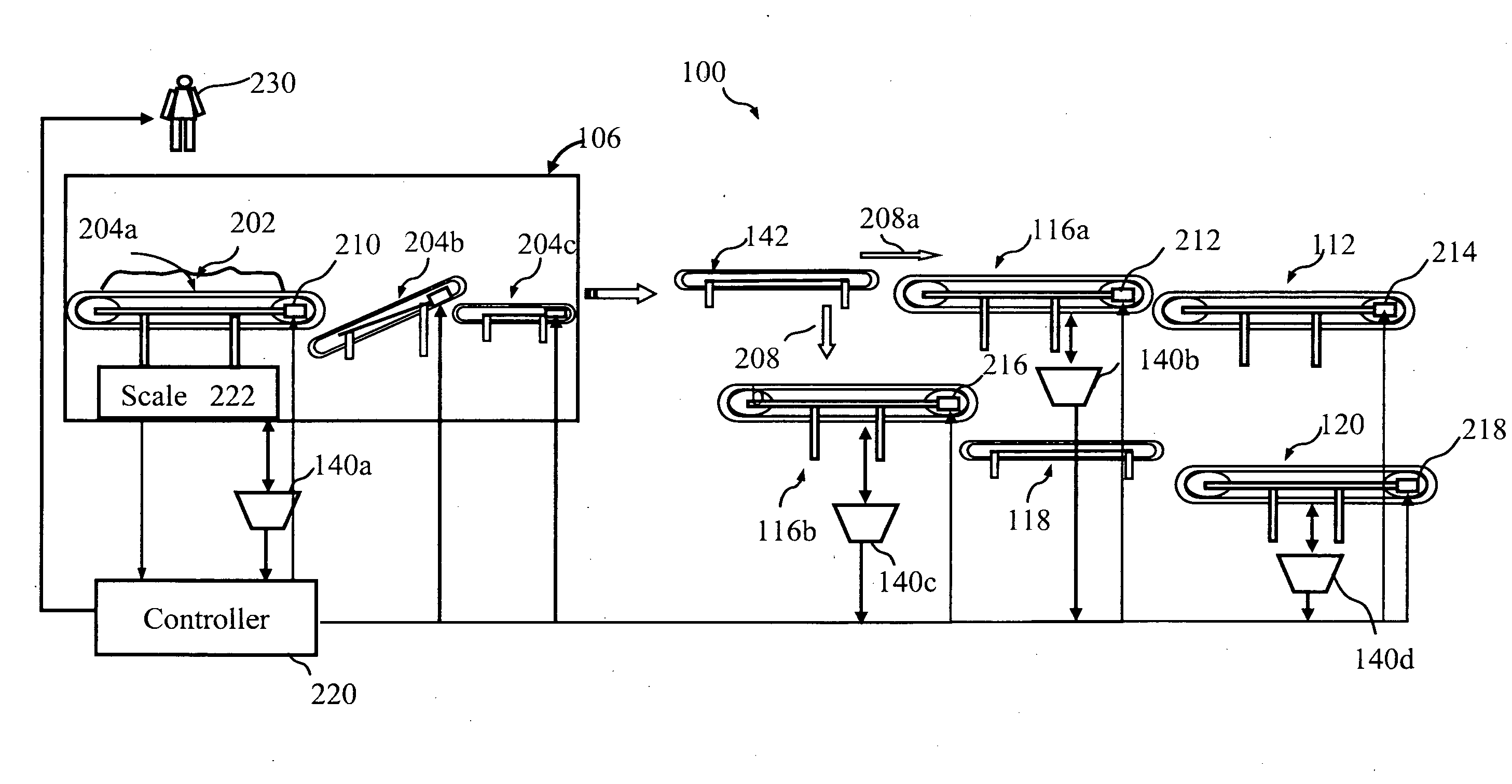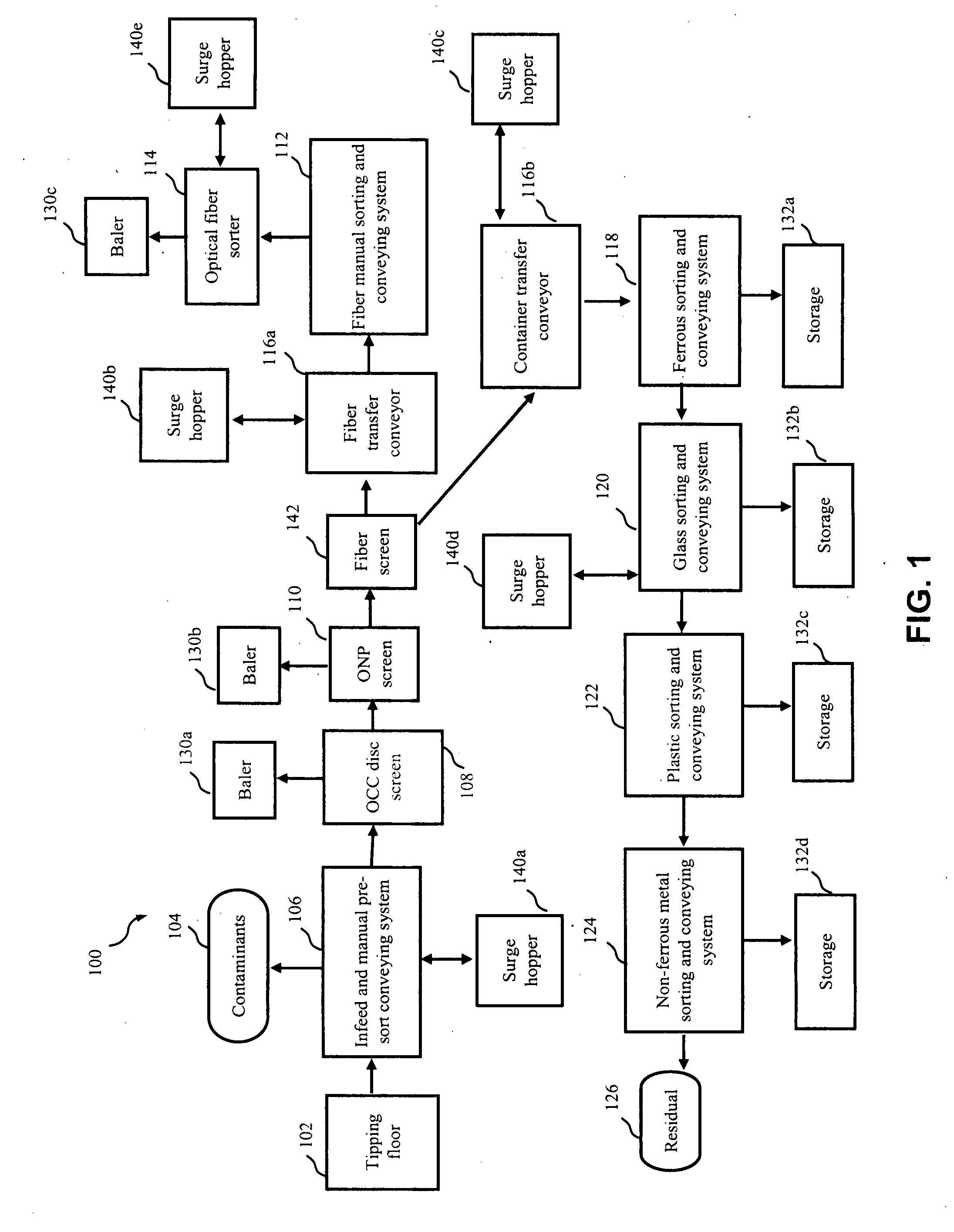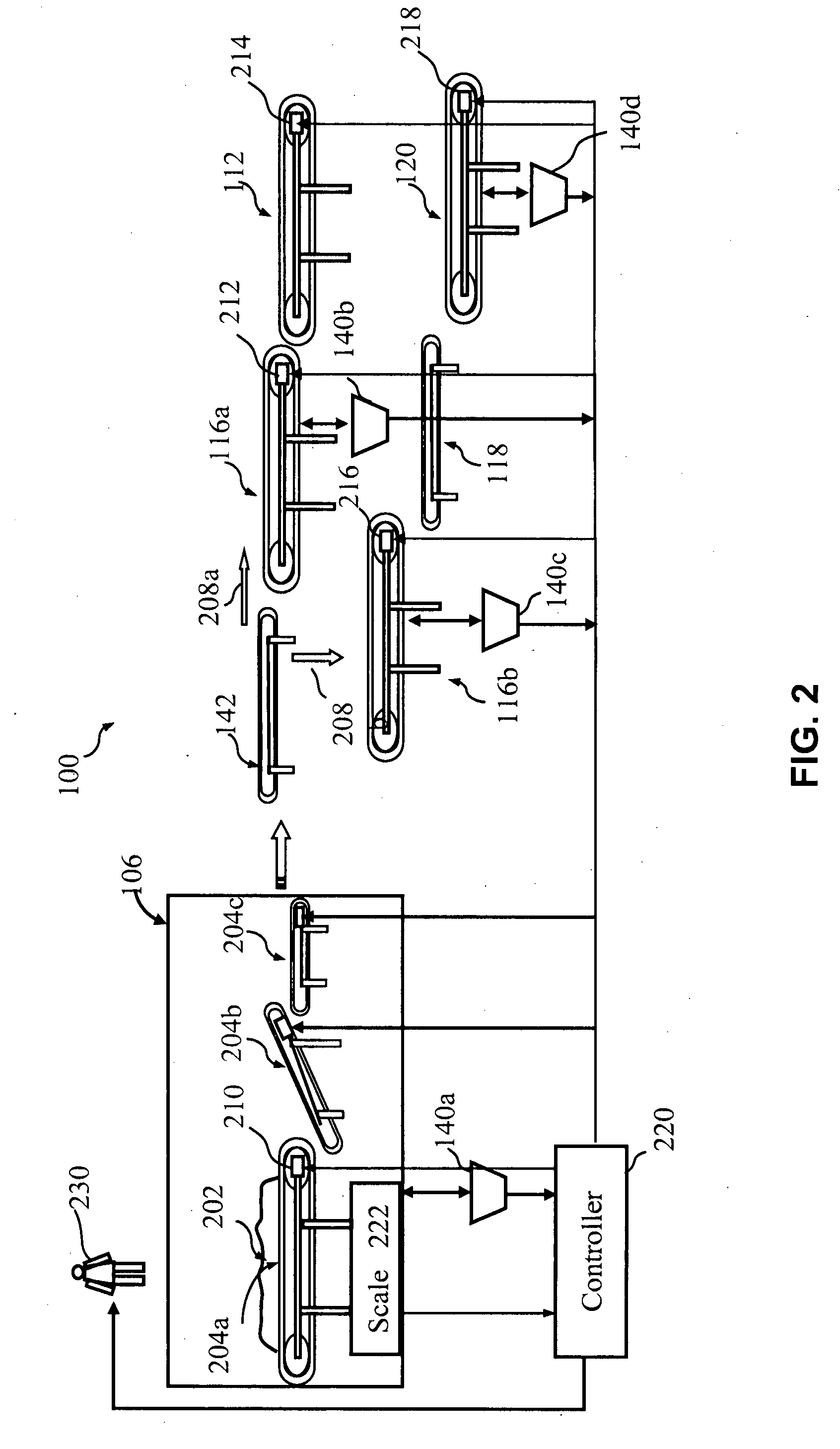Systems and methods for optimizing a single-stream materials recovery facility
a single-stream material and recovery facility technology, applied in glass recycling, chemistry apparatus and processes, centrifuges, etc., can solve the problems of affecting the other sorting stations become idle or under-utilized, and experience a “pile-up” or backlog, etc., to facilitate manual and/or automatic removal of remaining fiber items
- Summary
- Abstract
- Description
- Claims
- Application Information
AI Technical Summary
Benefits of technology
Problems solved by technology
Method used
Image
Examples
Embodiment Construction
[0010]Embodiments of the present invention provide systems and methods for sorting recyclable items in a single-stream materials recovery facility (SSMRF). In one embodiment, a system can include an infeed conveying system configured to receive and transport recyclable items. One or more screens can be configured to receive the recyclable items from the infeed conveying system and remove at least a portion of fiber items from the recyclable items. A fiber transfer conveyor can be configured to receive items from the screens and facilitate manual and / or automated removal of remaining fiber items.
[0011]The system can further include a container transfer conveyor configured to receive and move non-fiber items from the screens, and a ferrous sorting and conveying system configured to receive the non-fiber items from the container transfer conveyor and remove ferrous container items from the non-fiber items. A glass sorting and conveying system can also be provided and configured to rece...
PUM
 Login to View More
Login to View More Abstract
Description
Claims
Application Information
 Login to View More
Login to View More - R&D
- Intellectual Property
- Life Sciences
- Materials
- Tech Scout
- Unparalleled Data Quality
- Higher Quality Content
- 60% Fewer Hallucinations
Browse by: Latest US Patents, China's latest patents, Technical Efficacy Thesaurus, Application Domain, Technology Topic, Popular Technical Reports.
© 2025 PatSnap. All rights reserved.Legal|Privacy policy|Modern Slavery Act Transparency Statement|Sitemap|About US| Contact US: help@patsnap.com



